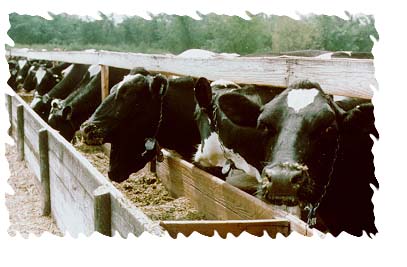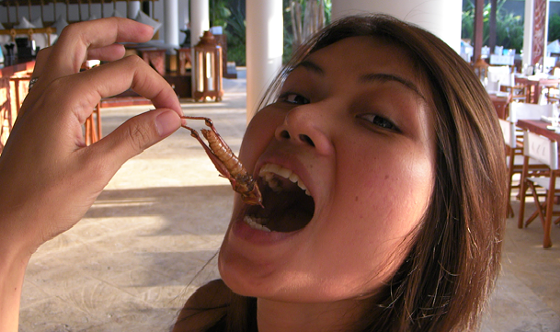When you think of a sustainable diet, did it ever occur to you to eat bugs? Normally, it wouldn’t occur to us, either. But this provocative post from our sponsors at Ecocleen did. It’s so interesting, we wanted to share it with you.
It’s clear to many people that as the world’s population rapidly grows (it’s expected to reach 9.5 billion by 2060), many aspects of our current way of life simply aren’t sustainable. Our meat-intensive diet is just one of those things.

Many people have become concerned about eating burgers, not only because they can be high in calories and saturated fat, but because producing meat takes a big toll on the environment. Let’s start with 13 – that’s the number of pounds of grain (5.9kg) needed to produce just one pound (450g) of meat. Meanwhile, it takes 11 times as much fossil fuel to make animal protein as the equivalent plant protein.
While many vegetarians believe that killing animals for meat is morally wrong, many also give up meat because of these environmental concerns. But while it’s clear that we need to find a greener way of feeding ourselves in the future, the answer to our grumbling stomachs doesn’t necessarily need to exclude animal matter.
Should You Eat Bugs?

Yet many people believe that if the minds (and mouths) of people can be persuaded to eat insects, not only will pollution be reduced, but nutrition will improve. Caterpillars are a particularly good source of protein, providing 28.2g per 100g – that’s almost a gram more than the same amount of minced beef.
What About Test-Tube Burgers?
If you just can’t get your head around the thought of grasshopper sausages or dung beetle meatballs, how about test-tube burgers instead? The world’s first (and so far only) artificially produced beef burger was unveiled to the world in August and prompted interesting debate about whether the burger would be suitable for vegetarians.
Created by growing 200,000 muscle fibres in a petri dish, the burger was biologically identical to beef. Creating an artificial burger isn’t cheap though – by the time the first one was ready for consumption, the project had racked up a bill of €250,000. Yet research leader Dr. Mark Post believes the cost will be worthwhile if it results in being able to produce laboratory grown meat on an affordable, large-scale basis, as the overall energy use was reduced by 70% while the requirement for water and land was cut by a massive 90%.
Green Solutions Are Needed to Reduce the Eco Impact of Producing Food
The thought of eating a test-tube burger or a dish of six-legged delicacies might be enough to turn your stomach, but the fact is we can’t continue consuming food the way we do indefinitely. In fact, finding greener solutions for every aspect of our life is vital – if we don’t, insects for dinner will be the least of our worries.
What Do You Think? Bugs or No Bugs?
Please leave a comment below and let us know what you think about bugs and test-tube beef as alternative sources of protein (in addition to tofu and other plant-based sources, of course).
Thanks to Amanda Stockhill and green cleaning company Ecocleen, which offers eco-friendly cleaning services and solutions. Visit them online at http://eslsolutions.co.uk.
DISCLAIMER: Sponsors like Ecocleen pay a small fee to guest post. Those fees help us continue to bring you our expert content at no cost to you. All sponsors meet our strict criteria for environmental accuracy and do not in any way affect our editorial judgement. Thanks!















